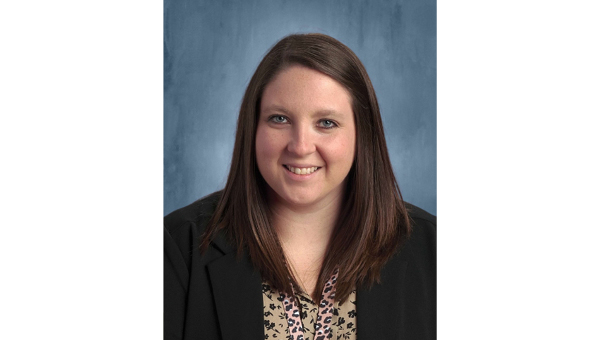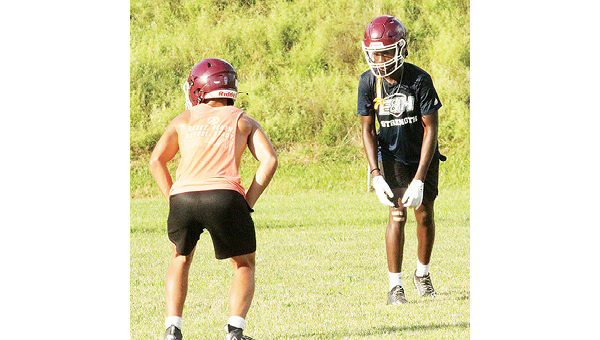No city or community is immune to civil unrest
Published 12:15 pm Tuesday, June 2, 2020
|
Getting your Trinity Audio player ready...
|
So many American cities are on edge — from the East coast to the West coast, from north to south and places in between, there is unrest. Americans are agitated and upset. Protests over the police killings of black civilians have begun peacefully in many cities, but have been marred by unfortunate acts of vandalism and looting that have damaged businesses, many of them owned by people of color.
The rioting and looting, unlike we have never seen before, comes amidst a pandemic, in which American cities have been quarantined, businesses and schools closed. And, it is still not over.
Across America, states and governors are working to keep the peace. This is not a matter of Democrats versus Republicans, blue states versus red states, or black lives versus white lives. This is a matter of what our democracy stands for. America is at war with itself, and there seems to be no general at the forefront to calm the forces, to give direction, nor to give counsel.
America may be at a tipping point. As a nation, we are mourning the deaths of over 100,000 of our people from the COVID-19 pandemic. More than 20 percent of our workforce may be unemployed, the highest rate since the Depression. Tensions are high, with so many Americans having been cooped up in their homes for close to three months. Layered onto that volatile mix is the enduring fact that many people in minority communities do not feel that the police enforce the laws equitably. The shocking death of a black man cruelly restrained by Minneapolis police officers on May 25 has only worsened the mistrust and anger that have been generations in the making, the bitter fruits of systemic racism.
The young people taking part in many of these protests see a lack of hope and opportunity in their lives. They are angry and fearful about the more than four centuries of subjugation that people of African descent have endured in what is now the United States. They were not alive during the 1965 Watts riots or the 1992 disturbances triggered by the acquittal of the Los Angeles Police Department officers who beat Rodney King — and prompted reforms that are still works in progress. They may lack context and perspective, but what they have in abundance is a yearning for a more just and decent society, for a more humane and sustainable economy, and for urgent action to address the climate crisis that threatens all of humanity.
This is a time for America’s leaders to listen — with compassion, empathy and humility. We condemn violence, but we urge restraint by the authorities. The actions of looters and vandals may grab the attention of TV news crews and embolden our president, but the misdeeds of a small minority do not justify an excessive or brutal response by the police or the National Guard. Deployment of the active-duty military would be an extraordinary measure, one constrained by federal law; it should be considered only if regular law enforcement has utterly failed. If there are outsiders stoking the disturbances, as Trump and some other leaders have suggested, they should go home — regardless of their political persuasion — and stop exacerbating the situation.
The police find themselves in a tough place of their own. The majority of cops who respect an individual’s rights and serve with integrity are tarnished by every bad cop who doesn’t. Every time there’s a police-involved death like Floyd’s, they all take a hit. They then have to face angry throngs who hurl insults and objects at them. That leads some of those cops to cross the line in an instinctive response to protect their colleagues and themselves. And then they become objects of further scorn.
Everyone needs to stop and ask the same question Martin Luther King Jr. asked in his fourth and final book: Where do we go from here? Chaos or community? We are called again today to answer this question.
All people — red, yellow, black, and white are important. God made us all. He died on the cross for all mankind.
Yes, there are troublemakers out there. There are people who do not want to work and who take and take and shun the opportunity to become better. They are both black and white.
But, we are better as a nation than we have proven this week.
No one seems to know the real answer to our problems, not even our national leaders. Our congressmen and senators have been unusually quiet.
There are many issues that need to be addressed: education opportunity for all, affordable health care, affordable housing, good-paying jobs all across America, not just in the big cities.
But, first and foremost, we must recognize that America is a melting pot of many nationalities, people of color, different religions, but they all want the same thing — freedom and opportunity, but it comes at a cost, and it takes some giving on the part of all.
This situation is not just about riots; it’s much deeper than that. We must work together — protesters and police, community activists, and elected leaders — to rebuild communities and ensure that every police department in America has the best-trained men and women who can keep the peace while always fulfilling “equal justice under the law.”





